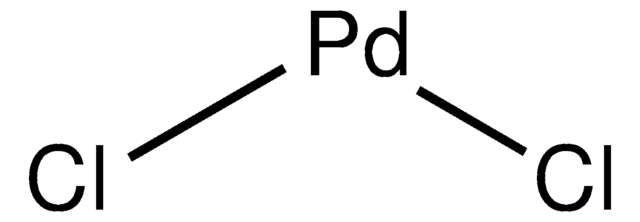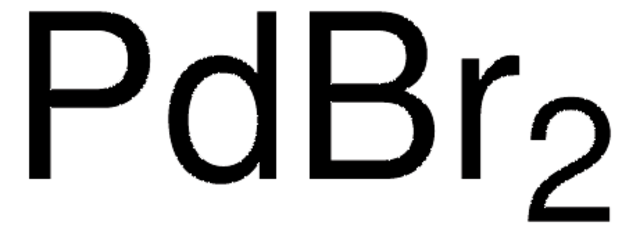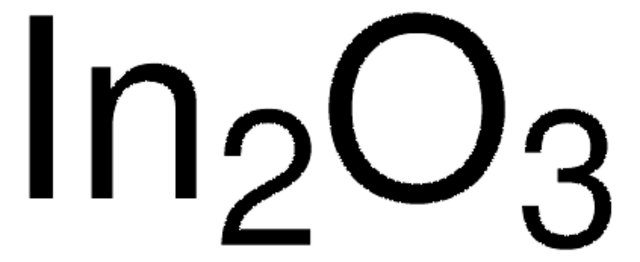76070
Palladium(II) nitrate dihydrate
~40% Pd basis
Synonym(s):
Palladium dinitrate hydrate
About This Item
Recommended Products
Quality Level
form
powder or crystals
reaction suitability
reagent type: catalyst
core: palladium
concentration
~40% Pd
SMILES string
O.O.[Pd++].[O-][N+]([O-])=O.[O-][N+]([O-])=O
InChI
1S/2NO3.2H2O.Pd/c2*2-1(3)4;;;/h;;2*1H2;/q2*-1;;;+2
InChI key
JUBNUQXDQDMSKL-UHFFFAOYSA-N
Looking for similar products? Visit Product Comparison Guide
General description
It is also employed in the fabrication of low-cost solid-state hydrogen storage devices made of three-dimensional (3D) reduced graphene oxide (rGO) and expanded graphite (EG)nanocomposite (NC) decorated with Pd nanoparticles (NPs).
Application
- Doping activated carbon for catalysis
- Catalytic use of hydroxyapatite (HAP) supported Pd nanoclusters in the hydrolysis of ammonia-borane.
It′s used as catalyst for:
- Selective hydrogenation of 1-heptyne and napthalene
- In highly porous coordination polymer MIL-101 support.
It may also be used as a reactant for:
- Preparation of platinum-palladium/carbon alloy nanocatalysts for methanol-tolerant oxygen reduction reaction in fuel cells
- Synthesis of Cu-Pd alloy thin films on Ti substrates by co-electrodeposition of Pd and Cu from nitrate-base electrolytic baths
- Preparation of palladium catalyst supported on vertically aligned multi-walled carbon nanotubes for microwave-assisted Heck reactions of p-iodonitrobenzene with styrene and Et acrylate
- Preparation of di-phenyl sulfide-modified Pd/TiO2 catalysts for acetylene hydrogenation
Signal Word
Danger
Hazard Statements
Precautionary Statements
Hazard Classifications
Acute Tox. 4 Oral - Aquatic Acute 1 - Aquatic Chronic 1 - Eye Dam. 1 - Met. Corr. 1 - Ox. Sol. 1 - Skin Corr. 1B
Storage Class Code
5.1A - Strongly oxidizing hazardous materials
WGK
WGK 3
Flash Point(F)
Not applicable
Flash Point(C)
Not applicable
Personal Protective Equipment
Choose from one of the most recent versions:
Already Own This Product?
Find documentation for the products that you have recently purchased in the Document Library.
Customers Also Viewed
Our team of scientists has experience in all areas of research including Life Science, Material Science, Chemical Synthesis, Chromatography, Analytical and many others.
Contact Technical Service














![[Pd(acac)2] Umicore, 99%](/deepweb/assets/sigmaaldrich/product/structures/145/685/c3d0f078-c0c6-4ce6-9c4a-b6a1b973b3a9/640/c3d0f078-c0c6-4ce6-9c4a-b6a1b973b3a9.png)